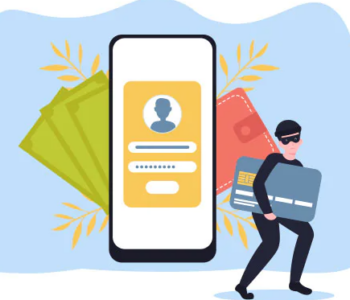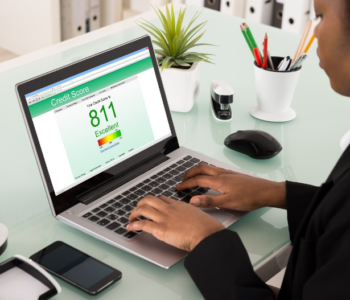 Credit
Credit
How to Use Credit Cards Wisely: A Simple Guide
|
Getting your Trinity Audio player ready...
|
Credit cards can be handy tools when used correctly. They offer convenience, security, and even rewards. However, they can lead to debt and financial stress if not managed well. Here’s a simple guide on how to use credit cards wisely.

Understanding Credit Cards: Their Purpose and Function
Credit cards are powerful financial tools that allow you to borrow money to make purchases. Understanding how they work can help you use them wisely and avoid debt. Let’s break down the basics of credit cards and their operation.
What Is a Credit Card?
A credit card is a card made of plastic or metal issued by a bank or financial institution. It allows you to borrow money up to a certain limit to buy goods or services. You can also use it to withdraw cash, although this usually comes with high fees.
How Does a Credit Card Work?
Using a credit card is straightforward. Here’s a step-by-step guide on how it works:
1. Making a Purchase
When you use your credit card to buy something, the card company pays the seller on your behalf. This means you don’t have to pay out of pocket immediately.
2. Billing Statement
Each month, your credit card issuer sends you a billing statement. This statement lists all your purchases, any fees, and the total amount you owe. It also shows the minimum payment due and the due date.
3. Paying the Bill
You need to pay at least the minimum amount by the due date to avoid late fees. However, paying the full balance is best because it avoids interest charges. If you pay less than the full amount, the remaining balance will carry over to the next month, and you’ll be charged interest on it.
Interest and Fees
Credit cards charge interest on the balance you carry over from month to month. This interest is called the Annual Percentage Rate (APR). The APR can vary, but it’s typically high, so it’s wise to pay off your balance each month.
Credit cards can also have various fees, such as:
- Annual Fees: A yearly charge for using the card.
- Late Payment Fees: Charges for paying your bill after the due date.
- Cash Advance Fees: Extra costs for withdrawing cash using your credit card.
How to Use Your Credit Card Wisely
Understand Your Credit Card Terms
Before using a credit card, make sure you understand its terms and conditions. This includes the interest rate (APR), annual fees, and any other charges. Knowing these details is crucial for anyone looking to learn how to use credit cards wisely. It helps you avoid surprises and manage your card responsibly.
Pay Your Balance in Full Each Month
One of the best ways to learn how to use credit cards wisely is to pay your balance in full every month. By doing this, you avoid interest charges and keep your debt from growing. Paying your balance in full also boosts your credit score, showing lenders that you’re responsible with credit.
Use Your Card for Necessary Purchases
Limit your credit card use to necessary purchases. This means using it for things like groceries, gas, or bills that you would buy anyway. Avoid using your card for impulse buys or items you don’t need.
Track Your Spending
Keep an eye on your credit card spending by regularly checking your account online or through your bank’s app. This helps you stay aware of your expenses and ensures you don’t exceed your budget. Tracking your spending also allows you to catch any unauthorized transactions early, which is an essential part of learning how to use credit cards wisely.
Set Up Automatic Payments
Setting up automatic payments for at least the minimum amount due can help you avoid late fees and keep your account in good standing. While it’s best to pay your full balance each month, automatic payments ensure you never miss a payment. This is a key strategy in understanding how to use credit cards wisely.
Take Advantage of Rewards Programs
Several credit cards provide rewards like cash back, points, or miles for purchases. Understand your card’s rewards program and leverage it wisely. Avoid overspending solely to earn rewards; purchase only what you need and can comfortably repay.
Avoid Cash Advances
Cash advances from your credit card typically incur high fees and interest rates, potentially leading to debt if not promptly repaid. It’s advisable to avoid using your credit card for cash advances unless absolutely necessary in emergencies.
Keep Your Credit Utilization Low
Credit utilization refers to the amount of your credit limit you’re using at any given time. Try to keep this below 30%. For example, if your credit limit is $1,000, aim to keep your balance under $300. Low credit utilization can improve your credit score and shows lenders you manage credit well.
Monitor Your Credit Report
Review your credit report regularly to make sure all information is correct. You can obtain a free credit report annually from each of the three major credit bureaus. Monitoring your credit report helps you detect errors or fraudulent activity early.
Don’t Apply for Too Many Cards
Applying for multiple credit cards in a short time frame can negatively impact your credit score. Only apply for a new credit card when it’s necessary. Each application triggers a hard inquiry on your credit report, which can lower your score.
Build an Emergency Fund
Building an emergency fund can help you avoid relying on credit cards for unexpected costs. Try to save enough to cover three to six months of living expenses. This financial buffer provides security and lessens the need to use credit cards during a crisis.
Conclusion
Using credit cards wisely involves understanding your card’s terms, paying your balance in full, and keeping track of your spending. By following these tips, you can enjoy the benefits of credit cards without falling into debt. Remember, credit cards are a tool, and like any tool, they’re most effective when used properly.
You will find the following information useful:









